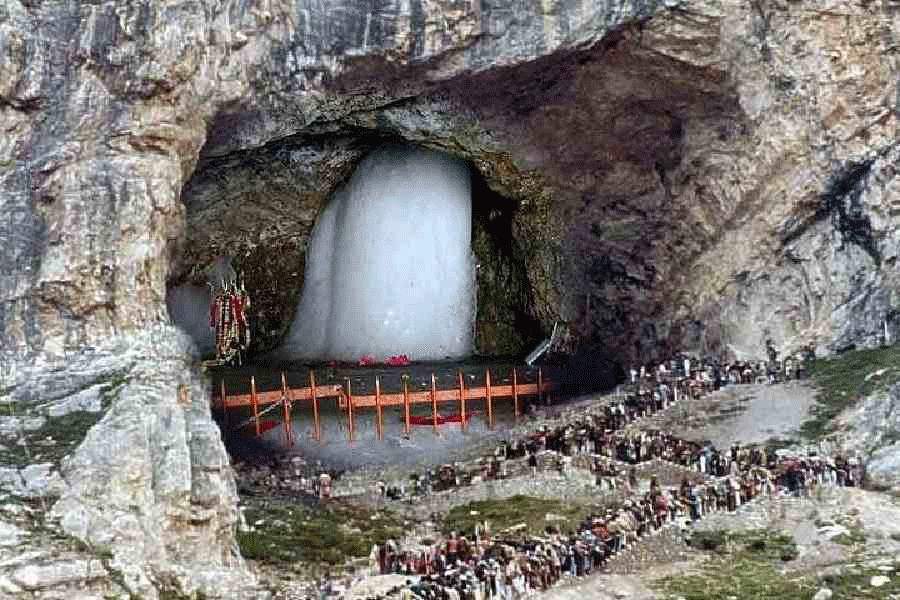The Border Roads Organisation has claimed to have created history by driving its vehicles right up to the Amarnath cave after widening the pedestrian track that passes through rugged mountainous terrain from Baltal to the shrine.
Many people have opposed the development, mostly on environmental grounds, with one critic saying the heat from vehicles might melt the ice Shivalinga.
The BRO feat comes months after the central government announced a Rs 5,300-crore Amarnath Marg --- made up of a 110km motorable road and a 5km concrete pedestrian track --- to the cave shrine in the higher reaches of the Himalayas.
An official at Beacon, an arm of the BRO, said the organisation’s achievement was independent of the central government project, which is yet to take off.
"Project Beacon is involved in the restoration and improvement of Amarnath Yatra tracks. Border Roads personnel completed the formidable task and created history with the first set of vehicles reaching the holy cave," the BRO posted on X.
Rahul Pandita, an author and journalist from the Kashmiri Pandit community, posted on X: "This is a disastrous move. The cave is under tremendous pressure already. The ice Shivling will disappear, do not do this."
The Beacon official said the 13km stretch from Baltal, in Ganderbal, to the cave had been widened to 15 feet to help vehicles drive up to the cave.
"It is not a permanent road. We have improved and widened the existing track, which will no doubt help the pilgrims but will also help us deal with emergencies. We wanted to complete the work ahead of the snowfall and we did it," the official told The Telegraph.











